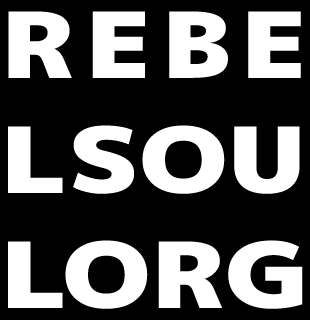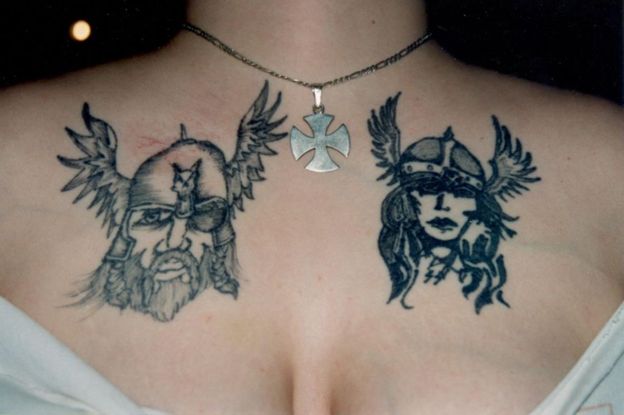Such a valuable story. Abridged for non-clickers…
“I had tattoos all over my body. I had Vikings tattooed on my chest, a swastika on my middle finger and ‘Sieg Heil’ on the inside of my bottom lip, which was the Hitler salute,” King says.
King, the eldest of three children, had been raised in a strict conservative family in South Florida. She went to an expensive private Baptist school and attended Catholic Church services each week.
But she had a secret that left her confused, angry and resentful.
“From very early on I felt I was abnormal because I was attracted to people of the same sex,” King says.
“I knew I had to keep it to myself. My mother used to say to me, ‘I will never stop loving you… except you better never bring home a black person or a woman.”
“When I was 13 a girl ripped open my shirt in front of the entire class,” she says.
“I was in a training bra and felt completely humiliated. It just blew the lid off the anger and rage I had been holding on to for so long.”
King fought back and realised violence and aggression gave her a sense of control that she had never felt before. She soon became established as the school and neighbourhood bully.
Soon afterwards she fled to Chicago with her boyfriend who was wanted for another hate crime. However, she was arrested weeks later and taken to the Federal Detention Centre in Miami.
It was the first time she had lived in close quarters with people from different cultures and backgrounds.
“People knew why I was in there and I got dirty looks and comments. I assumed I would spend my time with my back to the wall, fighting,” King says.
What King did not expect was the hand of friendship – especially from a black woman.
It was the start of an unlikely friendship and King found her racist belief system crumbling as a result.
Meanwhile some new inmates had joined the detention centre, including another Jamaican woman who took an instant dislike to King.
“People said she had been in violent gangs and was a real badass. One day as I passed, she asked: ‘How do you even get to be like that?’ I stopped and answered her as fully and honestly as I could.”
The two women began to talk and realised although they came from different worlds they had had similar experiences on the streets. Slowly the antagonism faded and they formed a bond. They realised over time that their feelings went beyond friendship.
When King was released in 2001 she was determined not to fall back into old habits. She was also keen to meet other gay people and started by talking to people in chat rooms.
“I was very honest about my past. I found acceptance in the gay community and realised I wasn’t alone.”
King went to community college to study sociology and psychology. She wanted to understand if her experience of extremism was a common one.
While there she made contact with the local Holocaust Centre, and sat down with a Holocaust survivor in 2004 to share her life story.
“She was very stern, but afterwards she looked me in the eye and said ‘I forgive you,'” King says.
She has been doing public speaking for the centre ever since. Then in 2011 she went to an international conference where she met other former extremists.
“I was excited to meet other people who had got involved in violent extremism and then got out. I wasn’t alone,” King says.
She met two Americans who had founded a blog called Life After Hate, in which they shared their stories. They agreed to work together to create a non-profit organisation to help other people leave the far right community.

